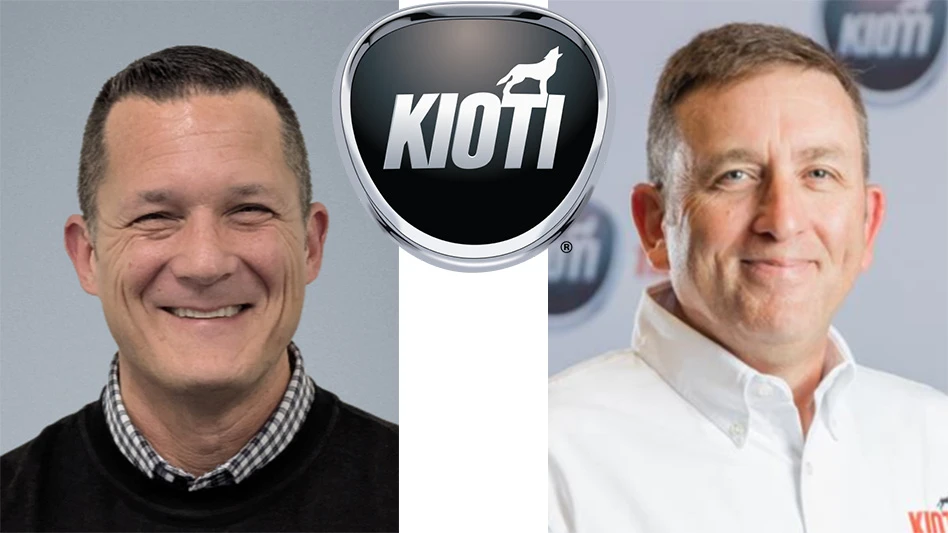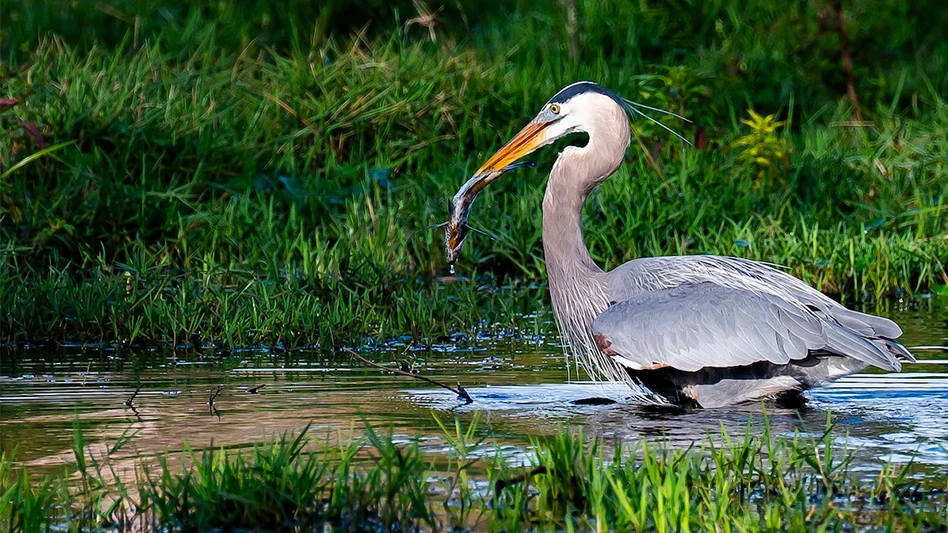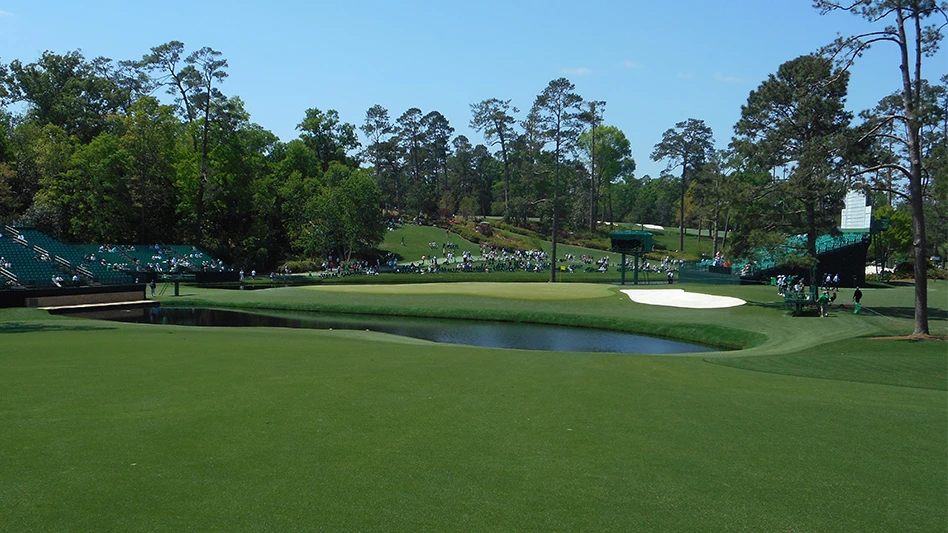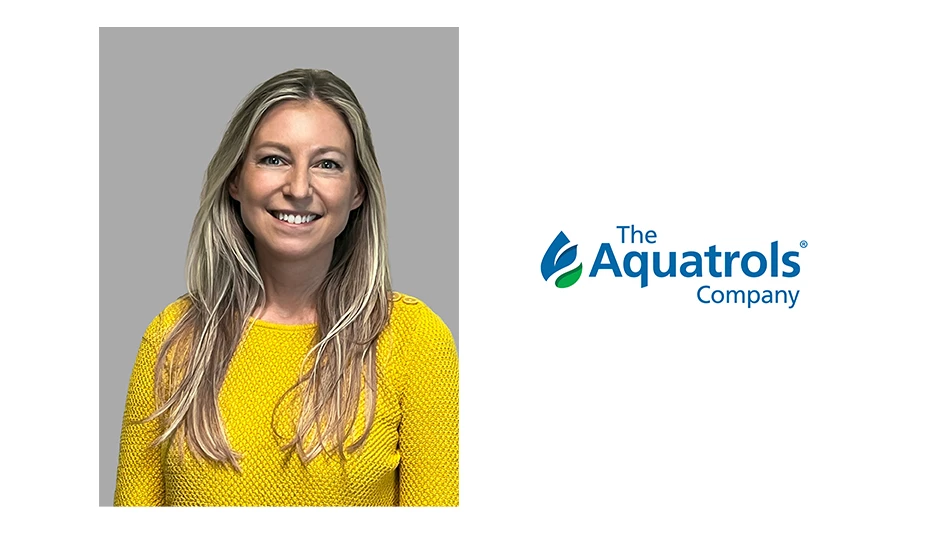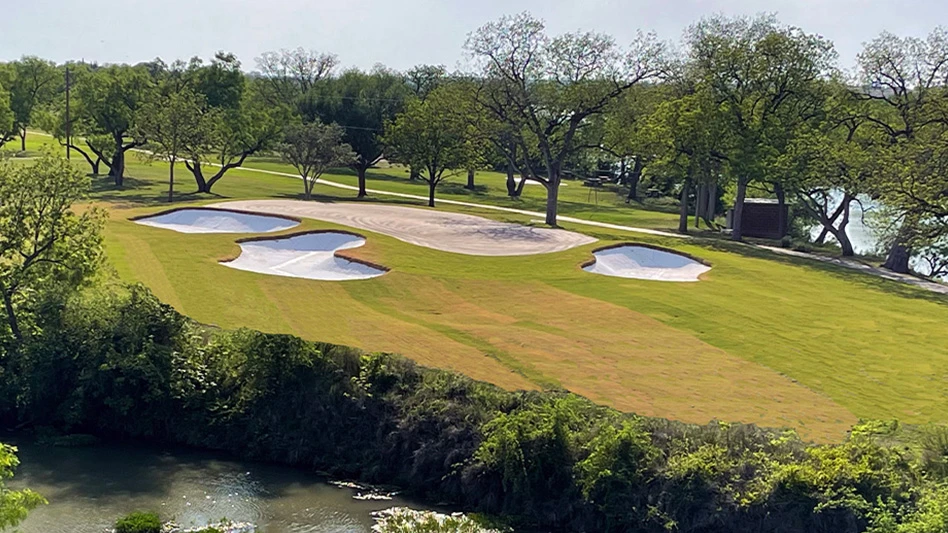
Tee alignment tools

When the Amarillo (Texas) Country Club was renovated in 2012 by designers Steve Wolfard and D.A. Weibring, square-edge tees were spec’d. Four tee alignment tools were built in-house, using 1⁄8-inch thick by 2-inch high by 15-inch long flat steel placed at right angles, with ½-inch diameter by 4-inch high spikes placed at each end on the bottom to hold them upright. ¾-inch diameter rolled solid steel about 36 inches high was used for the handles. All welded together, ¼-inch diameter nylon green and white standard golf course rope is placed at all four corners after they are aimed properly. This practice is done a minimum of every spring and fall. Metal-used railroad spikes, or metal rebar, will be placed in all four corners buried at least 6 inches deep in the future to also aid in locating them with a good quality metal detector. Superintendent Dillan Jones and assistant superintendent Chad Scott had fun designing them.

Grass clipping scale

Grass clippings are weighed on the putting green and third green every day they are mowed at Amarillo (Texas) Country Club. The 30-gallon plastic drum originally contained liquid organic fertilizer. Slits were cut all the way around near the top, so the drum weighed exactly 10 pounds and can be lifted easily. The mower operator takes the drum out on the course and fills it with grass clippings each day they are mowed. The drum is then weighed by placing it on top of an Ohaus SD Series Scale, which costs up to $300 depending on the model selected. When the grass clippings weigh more than 10 pounds, the greens are mowed the next day. If under five pounds, they are rolled instead of mowed. This great tool also helps to determine when fertilizers and growth retardants are required. Superintendent Dillan Jones and assistant superintendent Chad Scott are meticulous about everything they do. Steve Wolfard and D.A. Weibring are the restoration architects.

Explore the January 2025 Issue
Check out more from this issue and find your next story to read.
Latest from Golf Course Industry
- PBI-Gordon promotes Jeff Marvin
- USGA investing $1 million into Western Pennsylvania public golf
- KemperSports taps new strategy EVP
- Audubon International marks Earth Day in growth mode
- Editor’s notebook: Do your part
- Greens with Envy 66: A Southern spring road trip
- GCSAA’s Rounds 4 Research auction begins
- Quali-Pro hires new technical services manager
